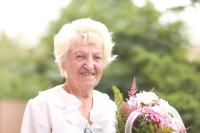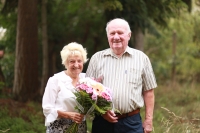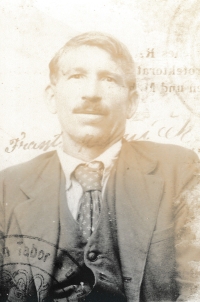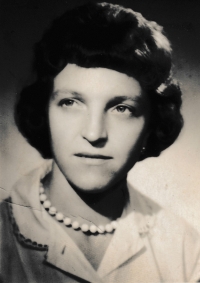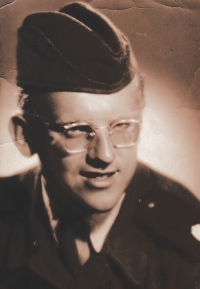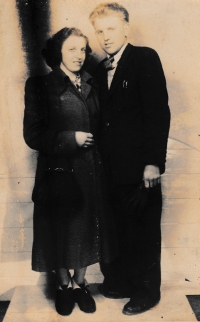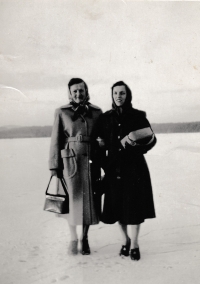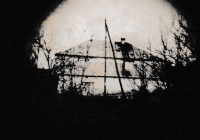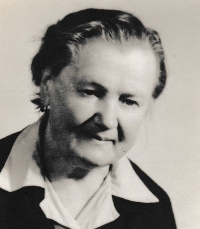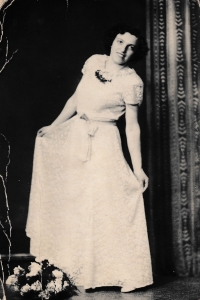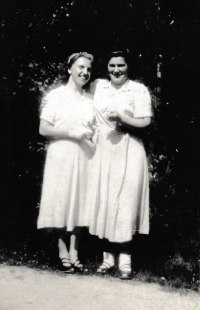They picked me up in summer clothes, in which they forced me to leave from the prison to the cold

Download image
Marie Kastnerová was born on August 22, 1927 in Zahořany near Milevsko into a farming family. Her parents were Marie and František Řezníček. The family lived in the small settlement Pelechy below Koňský vrch. Marie remembers life during the war and liberation by the Red Army. During the war, she trained as a women’s tailor, but did not work in the field. The parents then moved to the border area, where they had a pub. In Skviřín, the radio station Free Europe could be tuned in without any problems, so they listened to it in the pub. In 1947, Marie was employed as a nanny for some time in Prague. A year later, her father died prematurely. Marie, her mother and brother were arrested and imprisoned in 1951, but they were divided. Maria was imprisoned in Tachov, Stříbro, Pilsen and again in Tachov. She experienced harsh moments in the prison at the railway station in Žihla, where she was supervised by a female nurse with deviant tendencies. She was released from prison in February 1953, without any money and wearing the summer dress in which she had been imprisoned two years earlier in August. The family lost their house and field irretrievably. The reasons for the arrest were not known until much later. Marie was supposed to be arrested for carrying a letter to a Mr. Slám in Pilsen. At that time, however, she knew Pilsen only from the map. The reason for the arrest of her brother and mother was supposed to be listening to the Radio Free Europe. Marie then worked in a ceramics factory in Horní Bříza, then in a paper factory, then in Škodovka. Her first marriage ended unhappily. However, on September 14, 1966, she married Josef Kastner and together they raised two children. She then worked in horticulture, in a chemist and finally in wood modeling. At the time of filming in 2022, she lived with her husband in Nová Hospoda in Pilsen and liked to spend time in a caravan in Podskalí on the banks of the Orlická dam. Both continue to pursue the dance that brought them together years ago.
